EXHIBITION.
Moths of the Great Southern, Western Australia.
This was my first solo exhibition. I wanted to create a locally relevant wildlife experience for the local community. The moth often goes unnoticed and unseen - usually small, camouflaging, night-flying, generally unappreciated. And yet they are an incredibly important part of our local ecosystems, hugely diverse and often very beautiful if you just look a little closer…
‘MOTH’
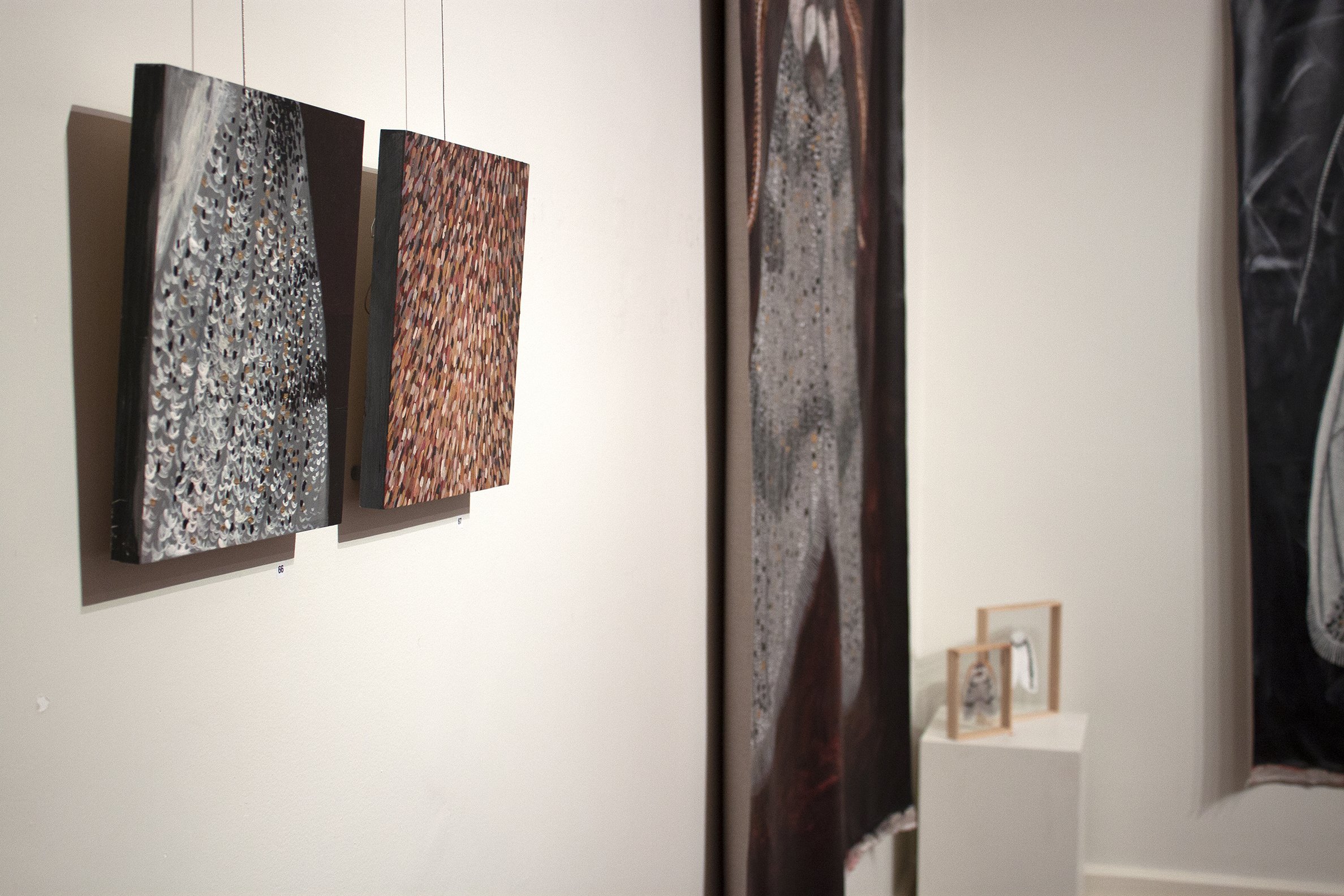
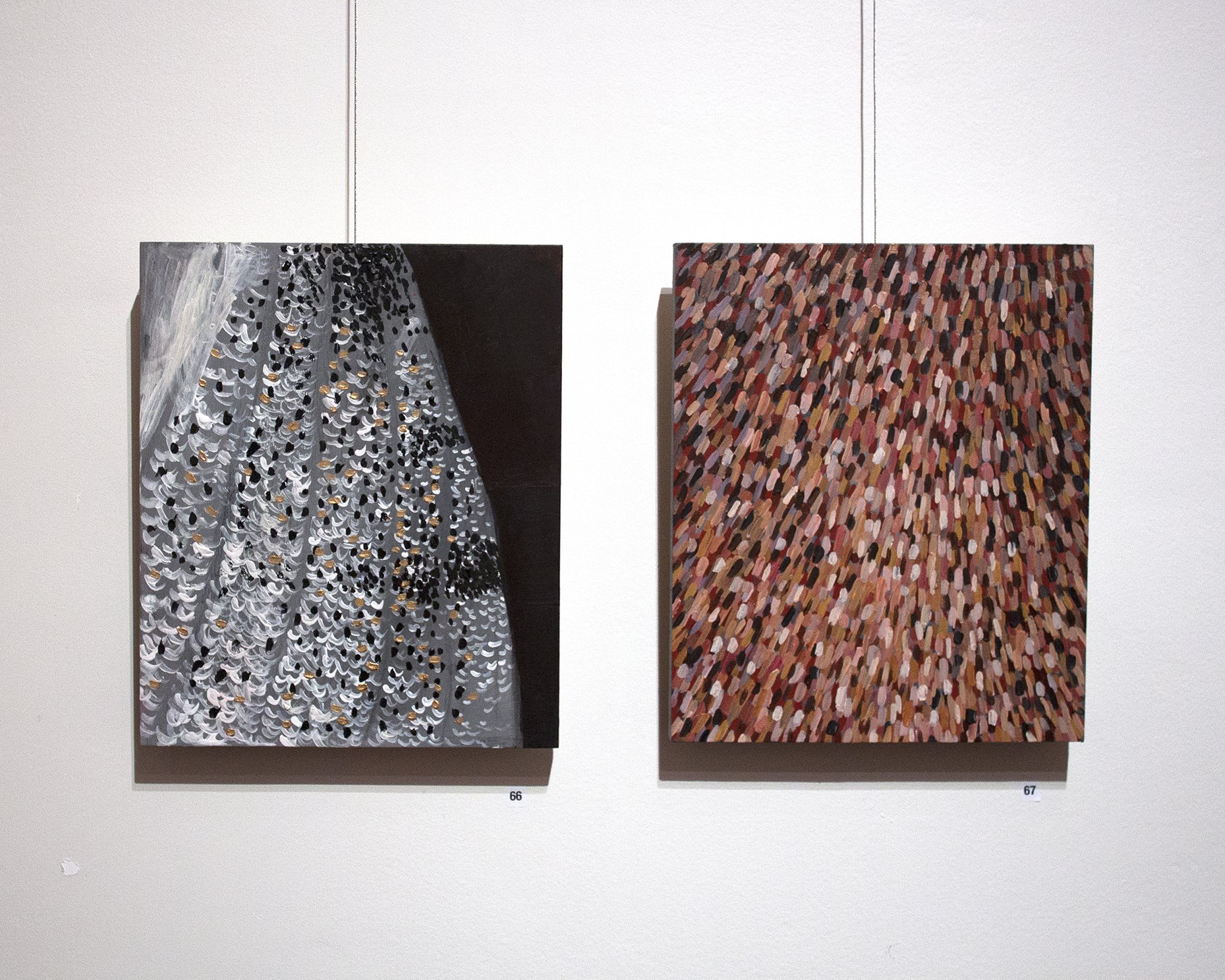
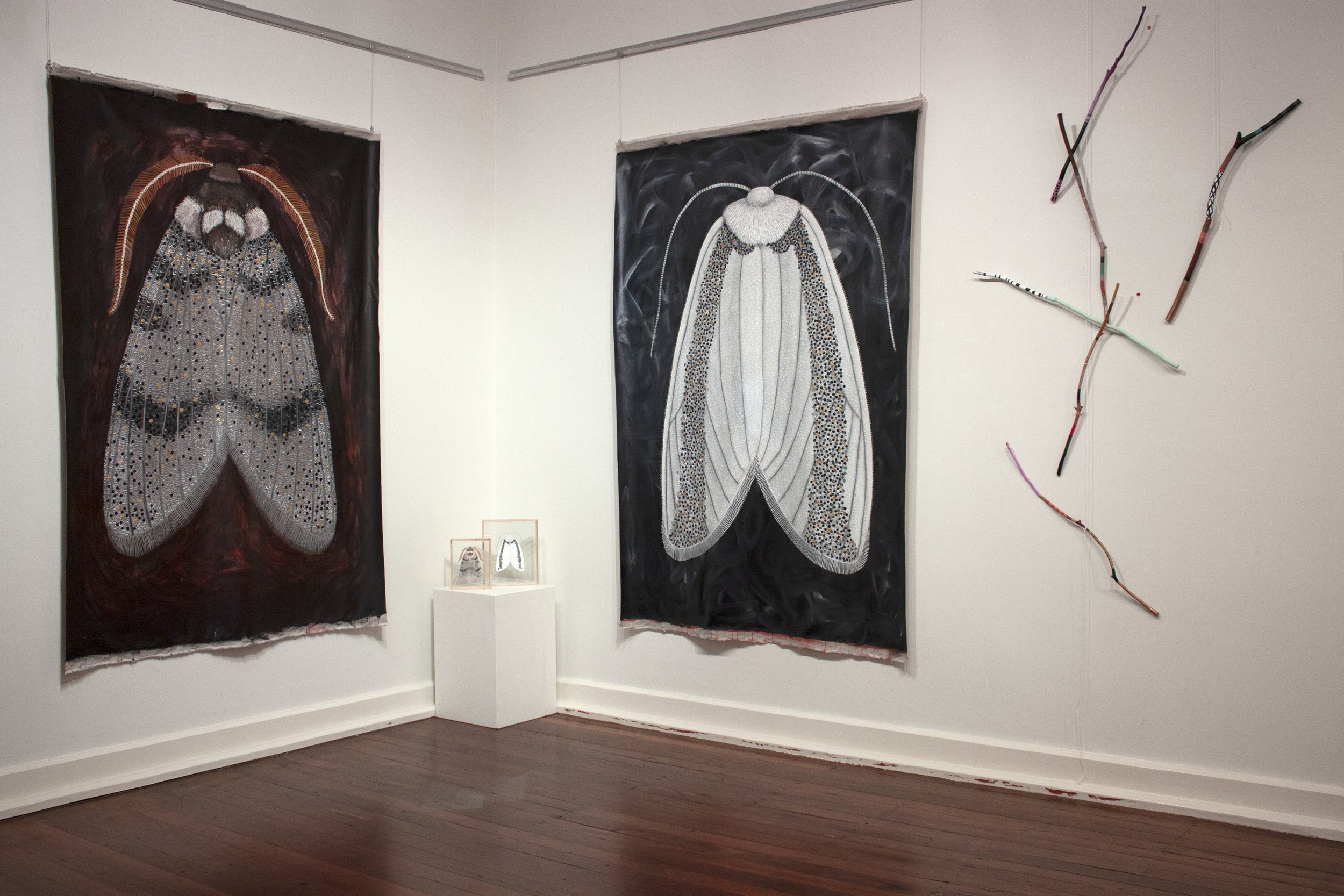
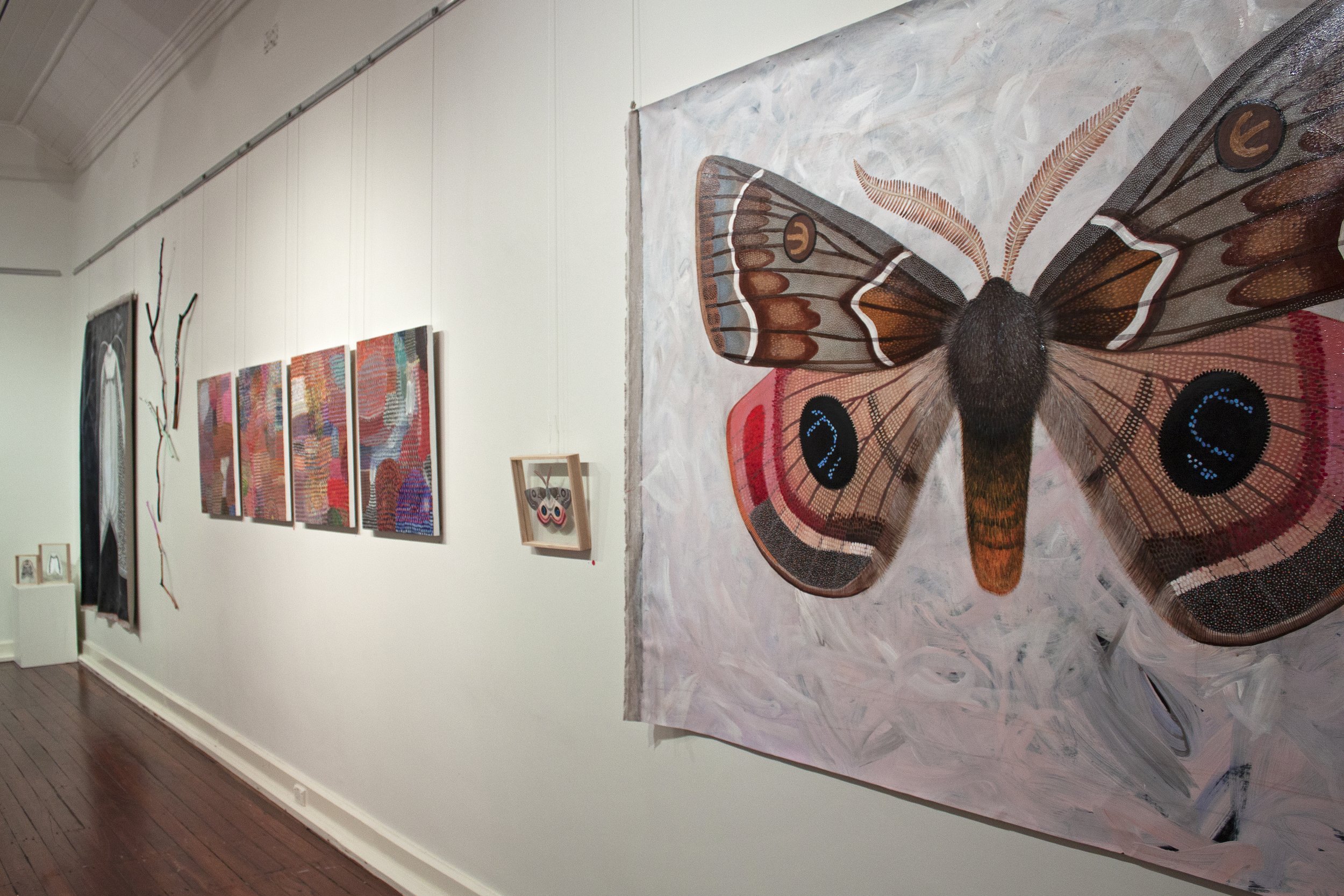
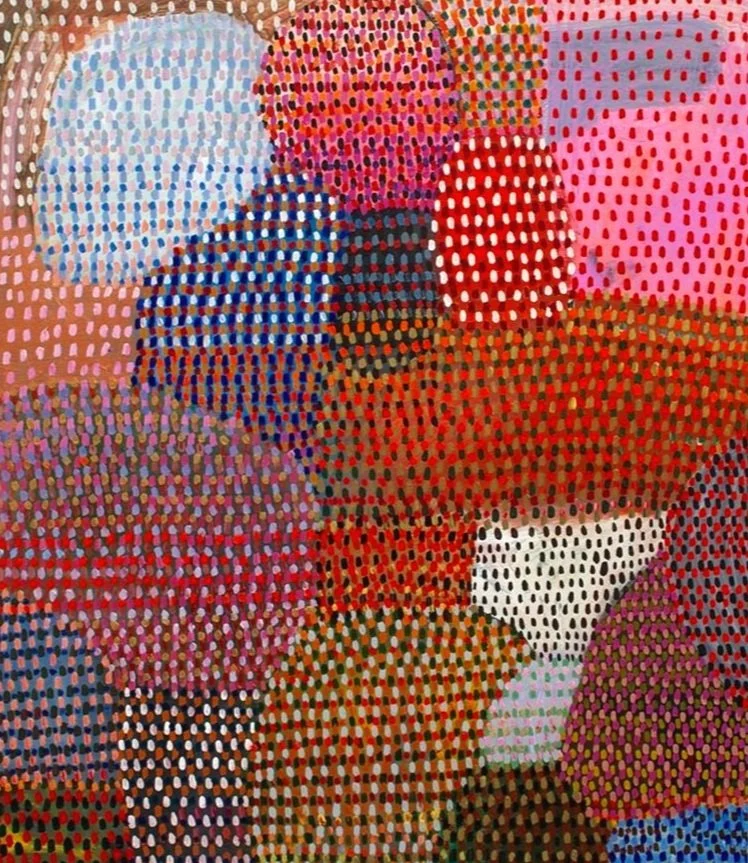
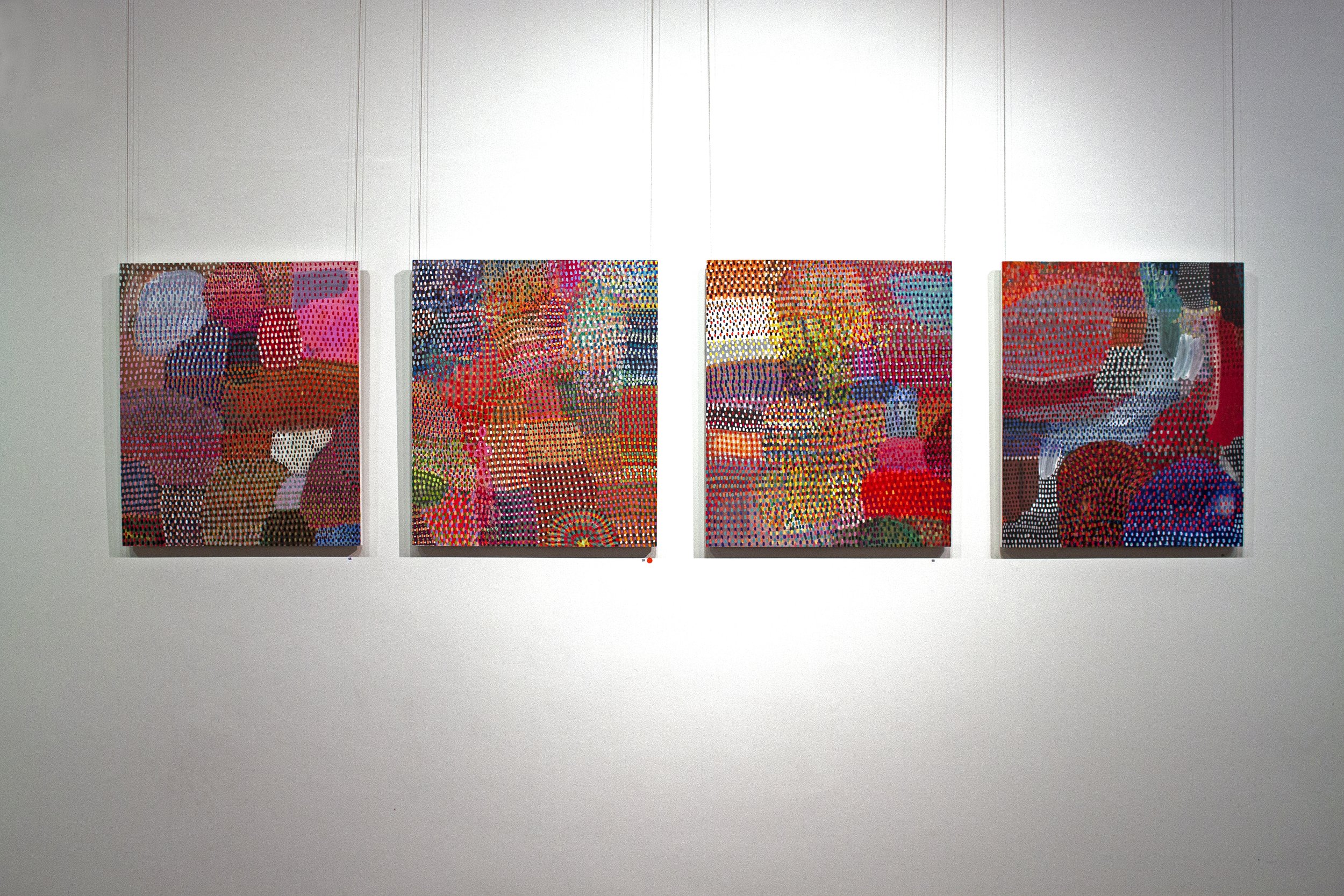
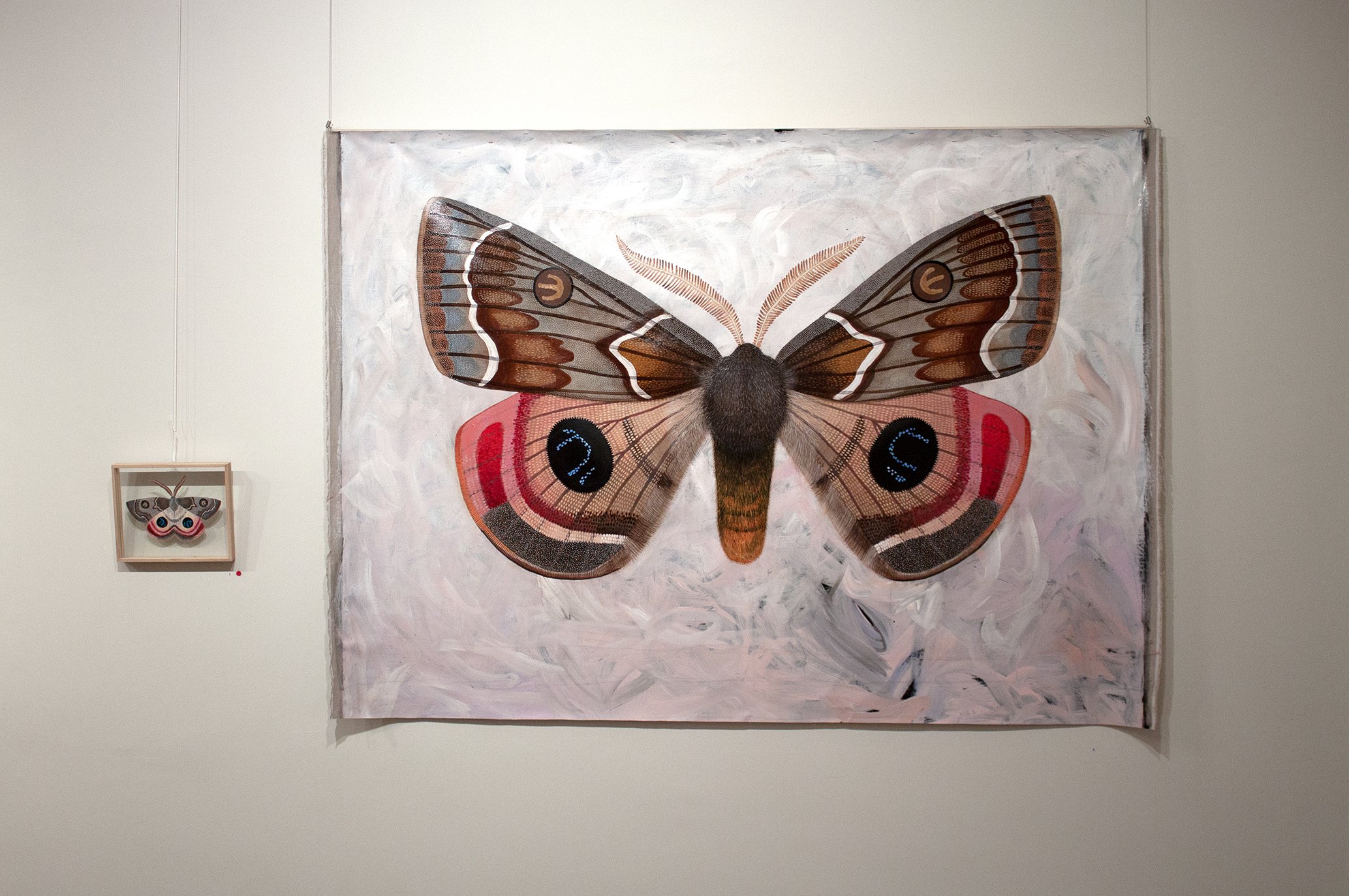
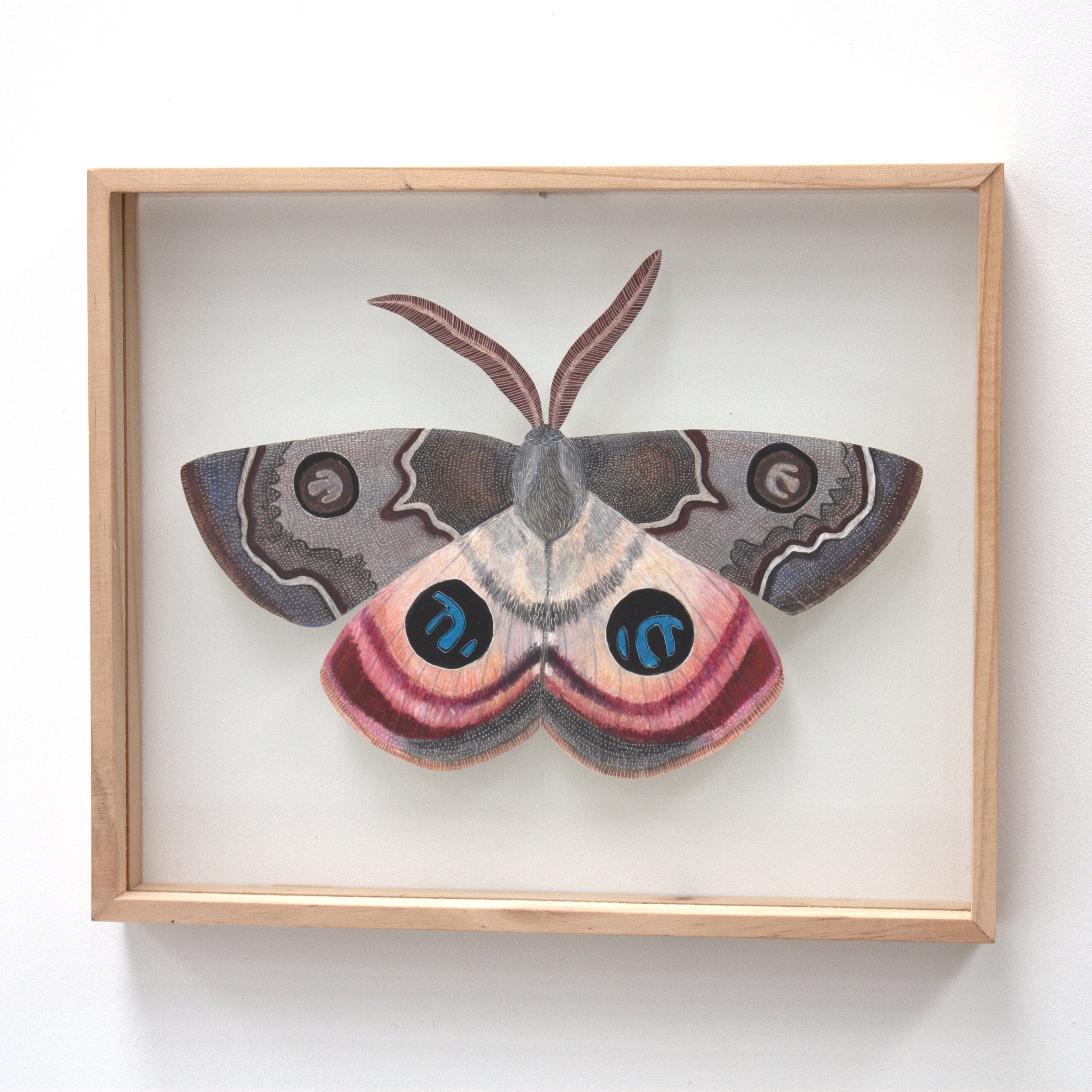
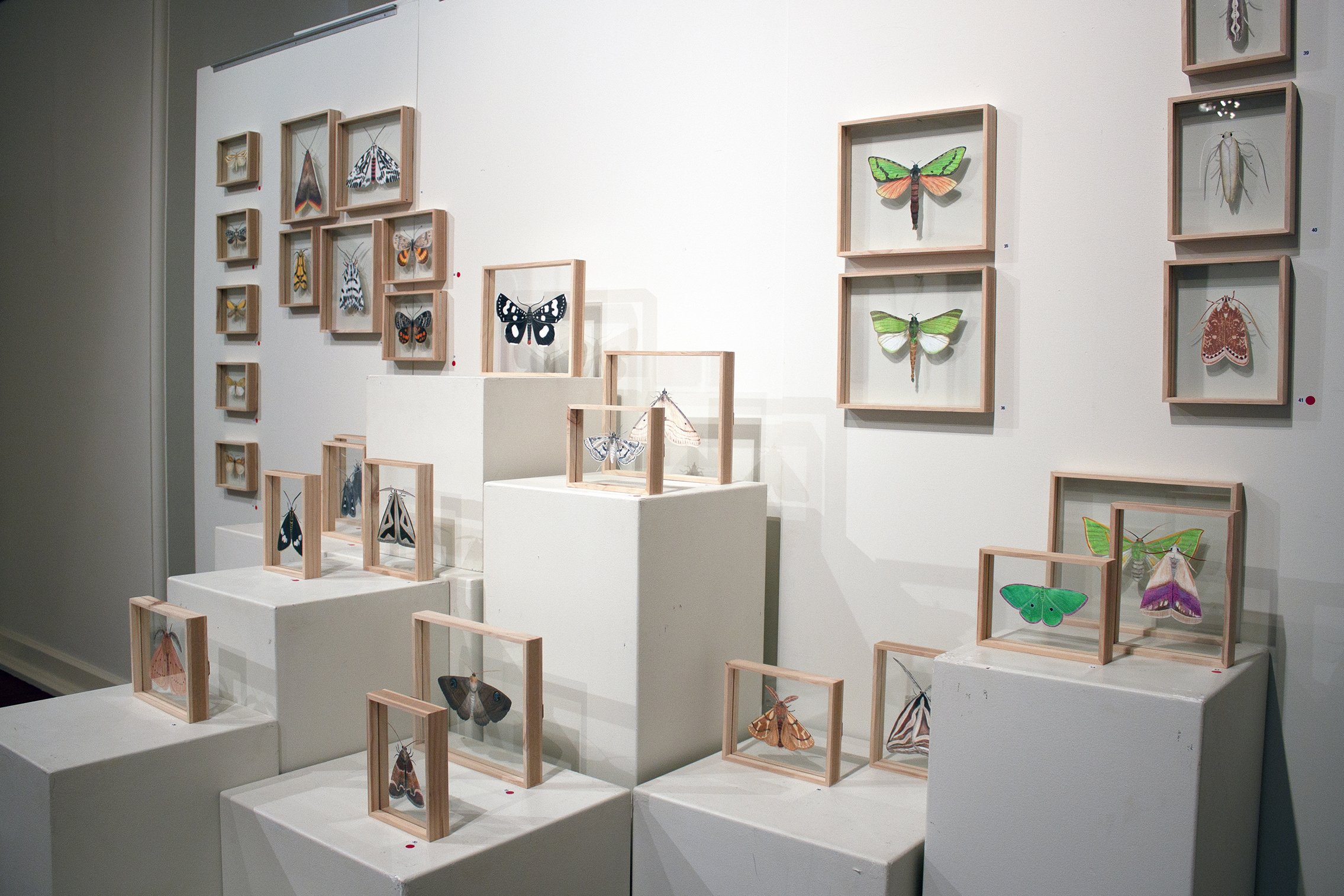
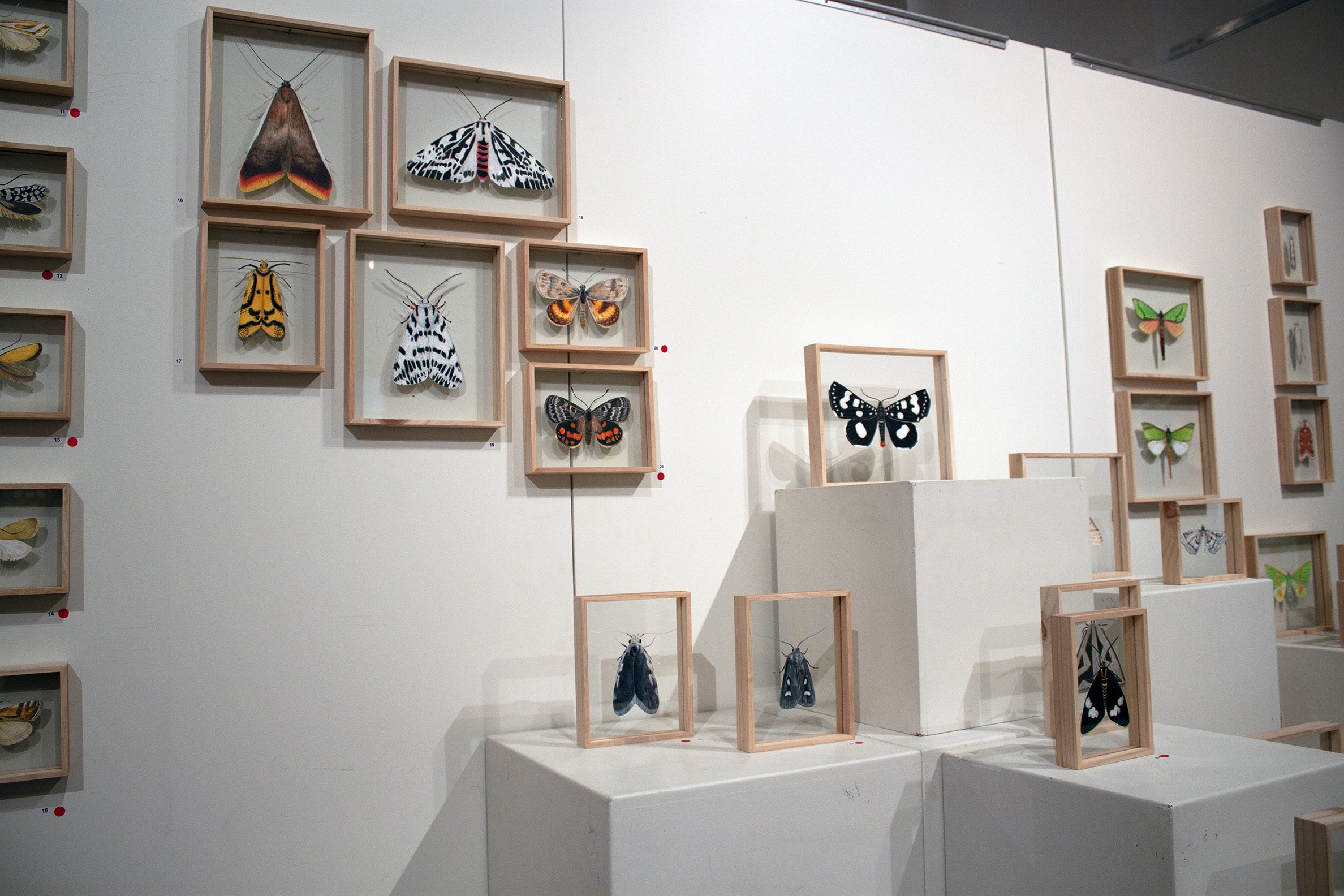
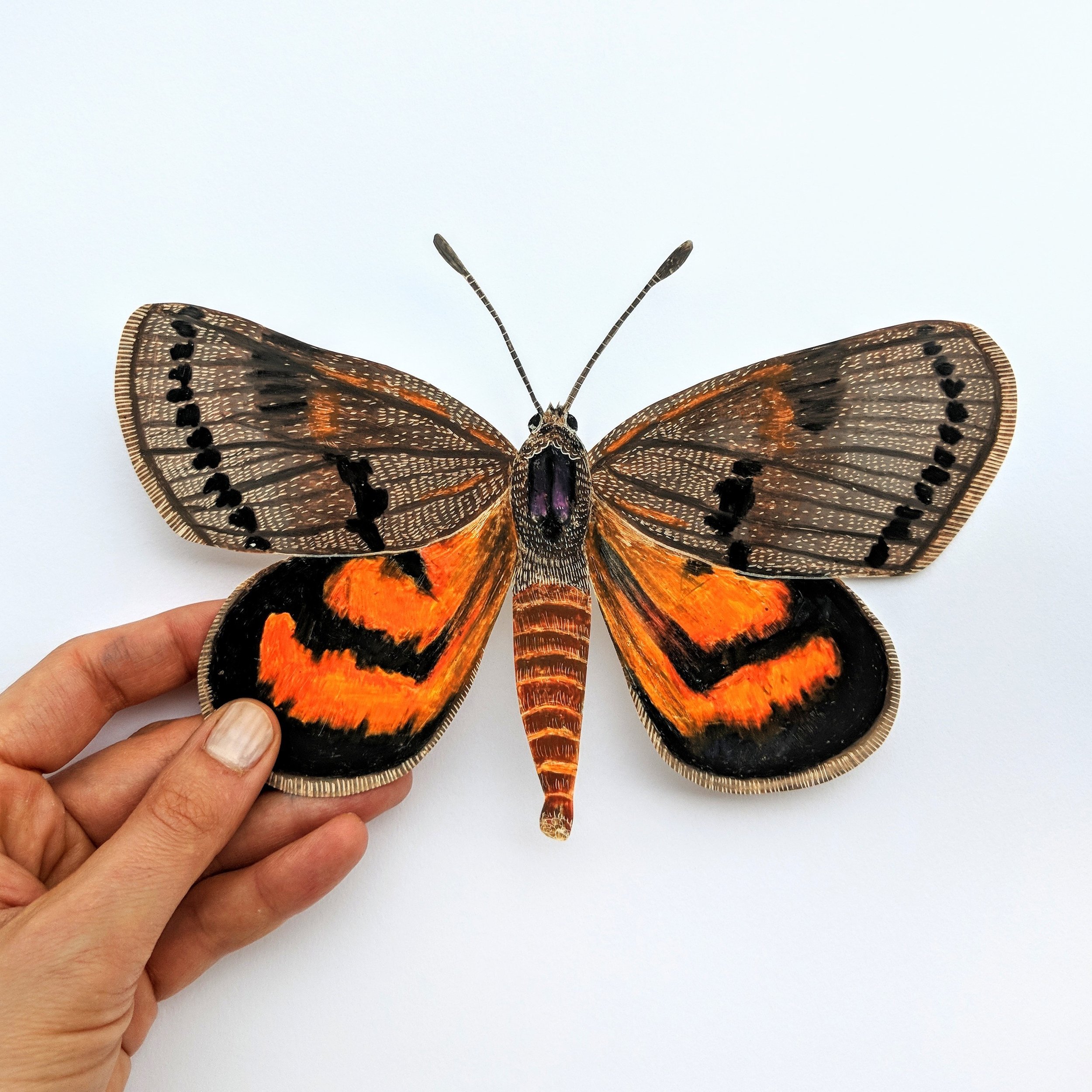
'MOTH' at the Vancouver Arts Centre, Albany
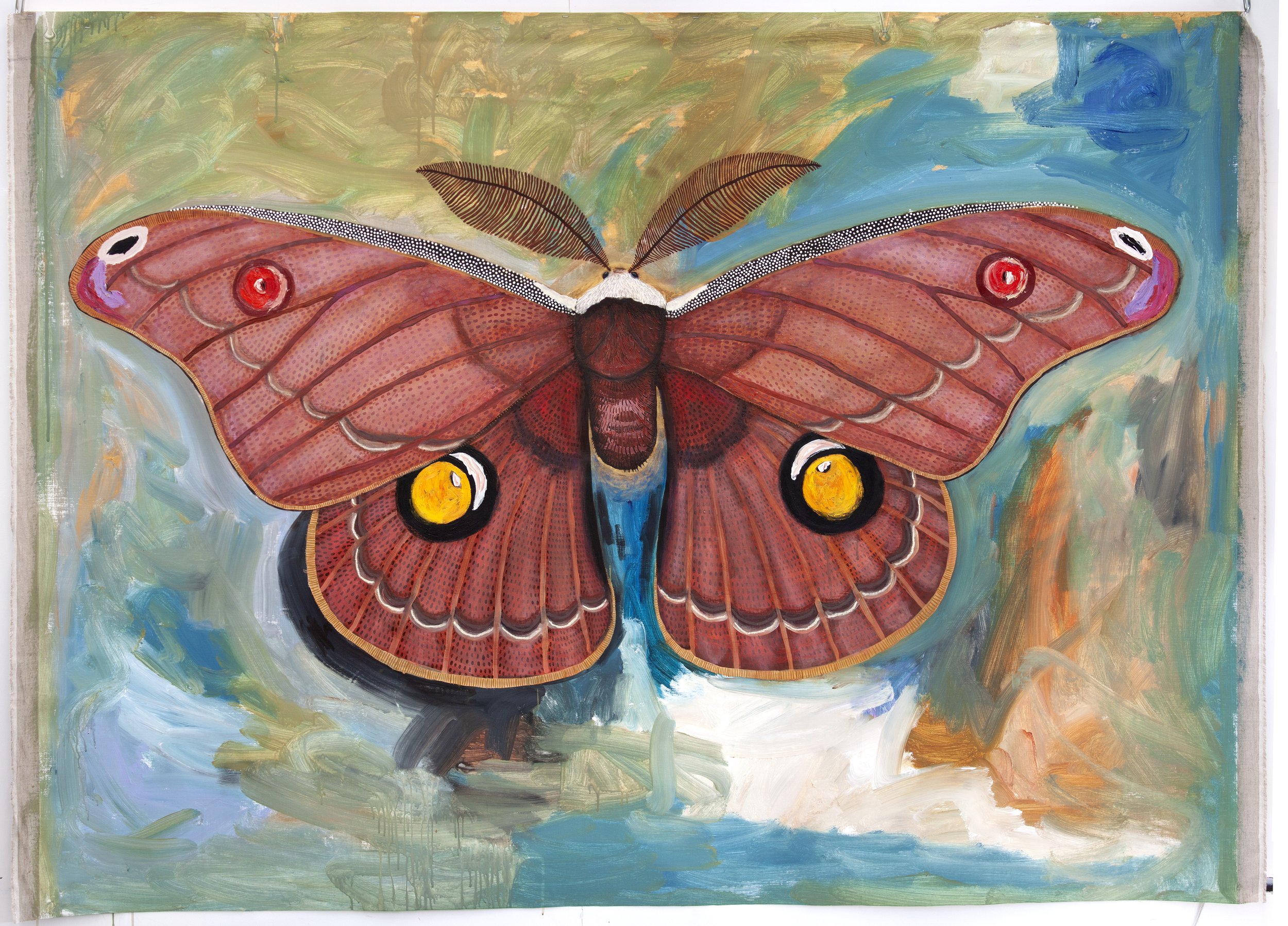
Helena Gum Moth (Opodipthera helena)
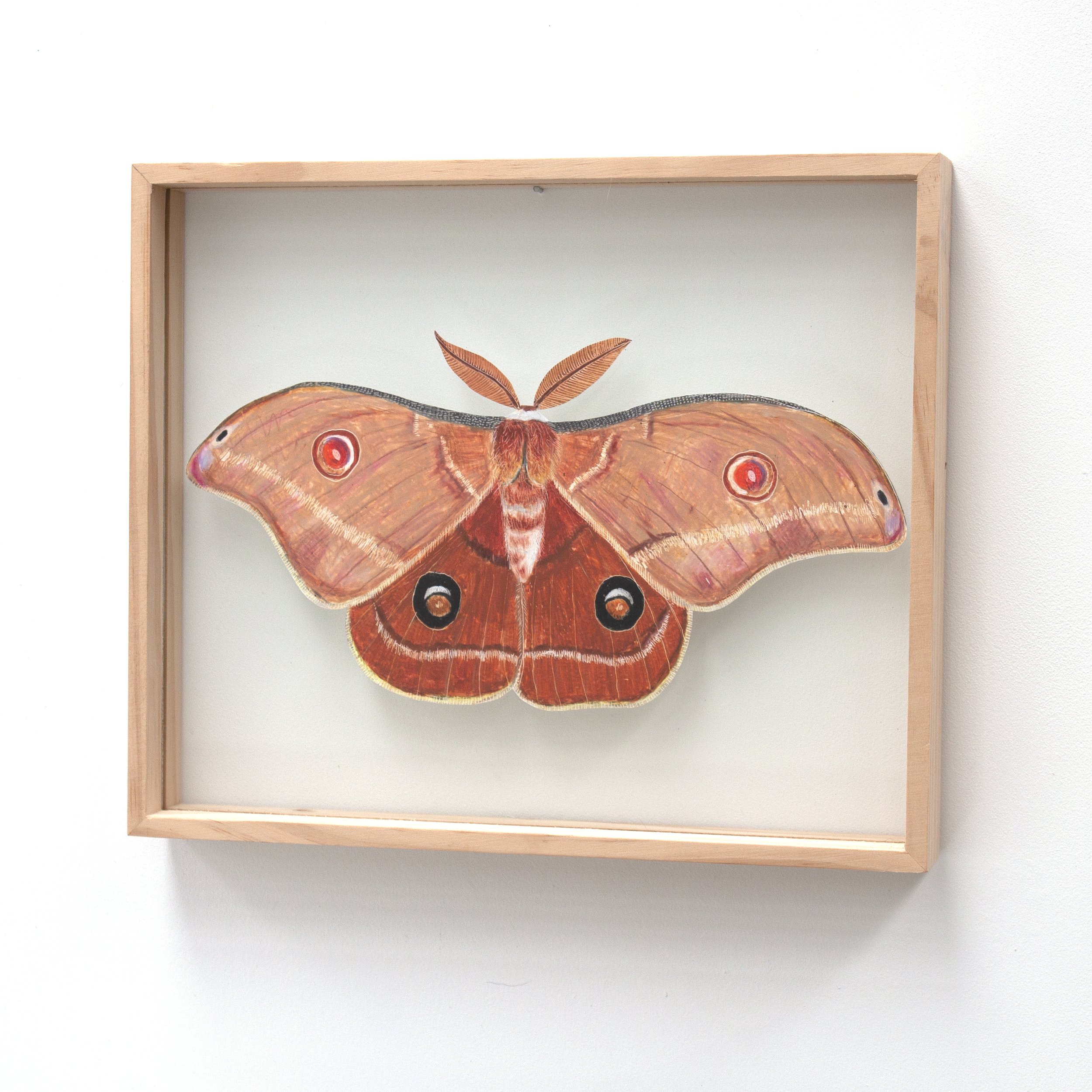
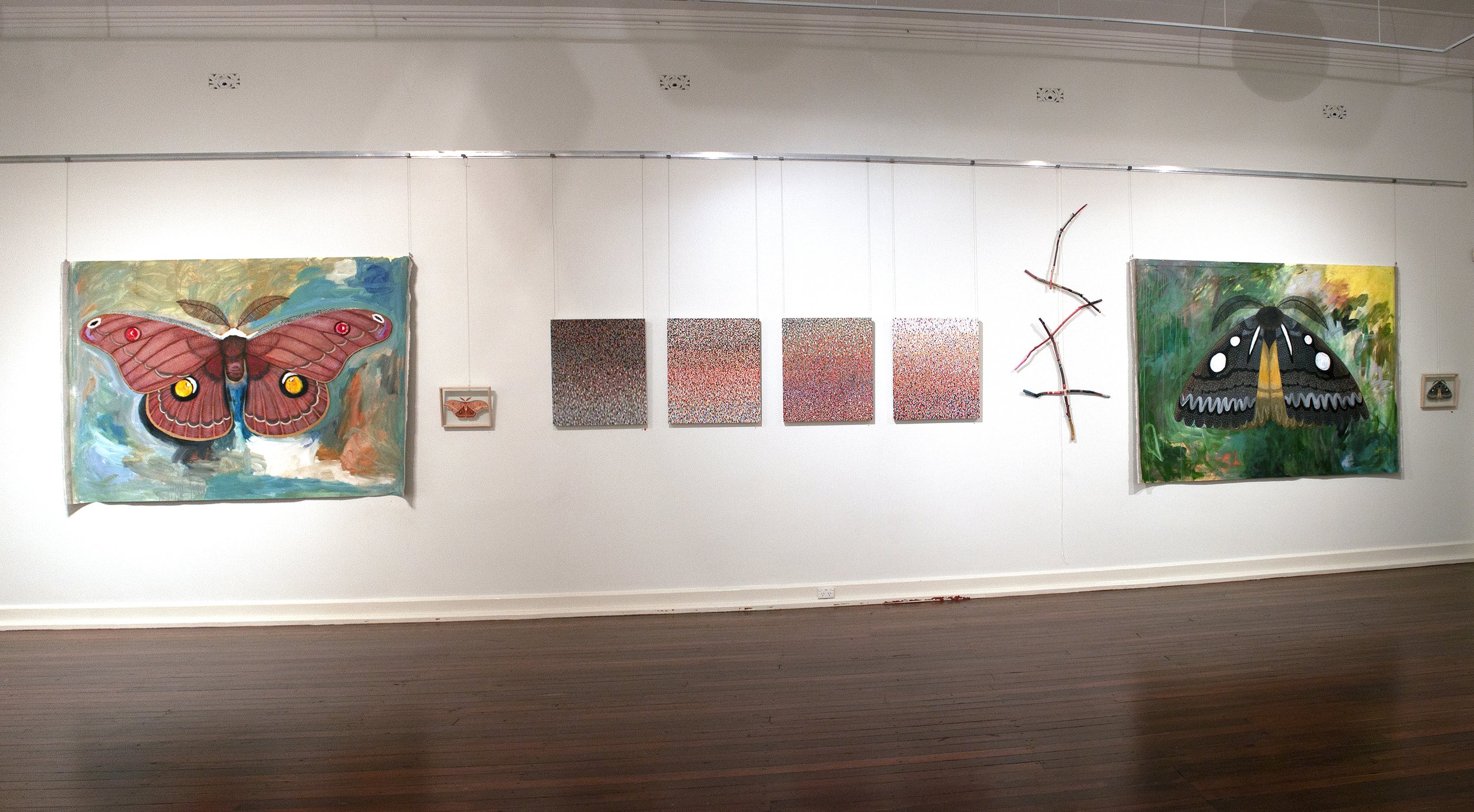
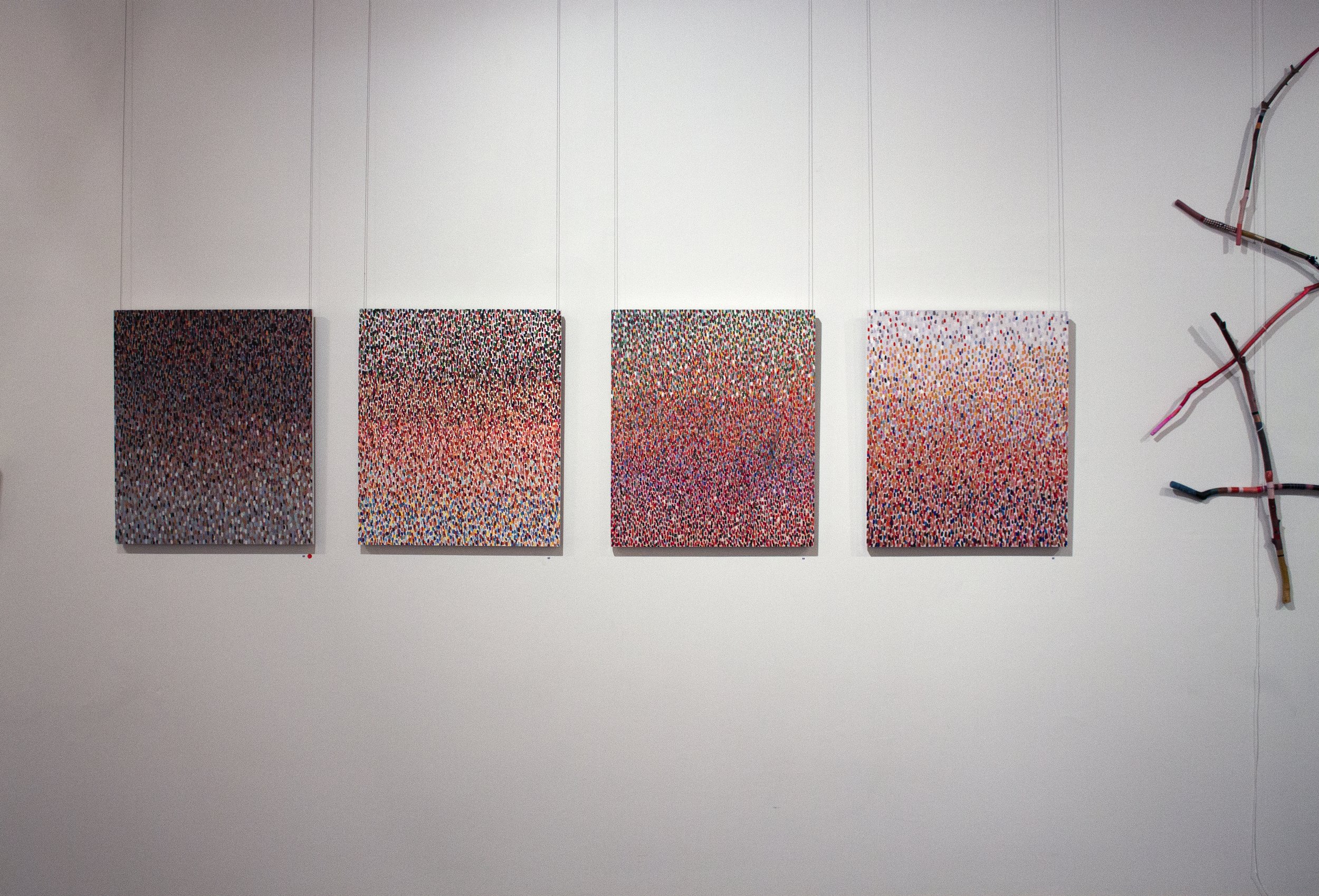
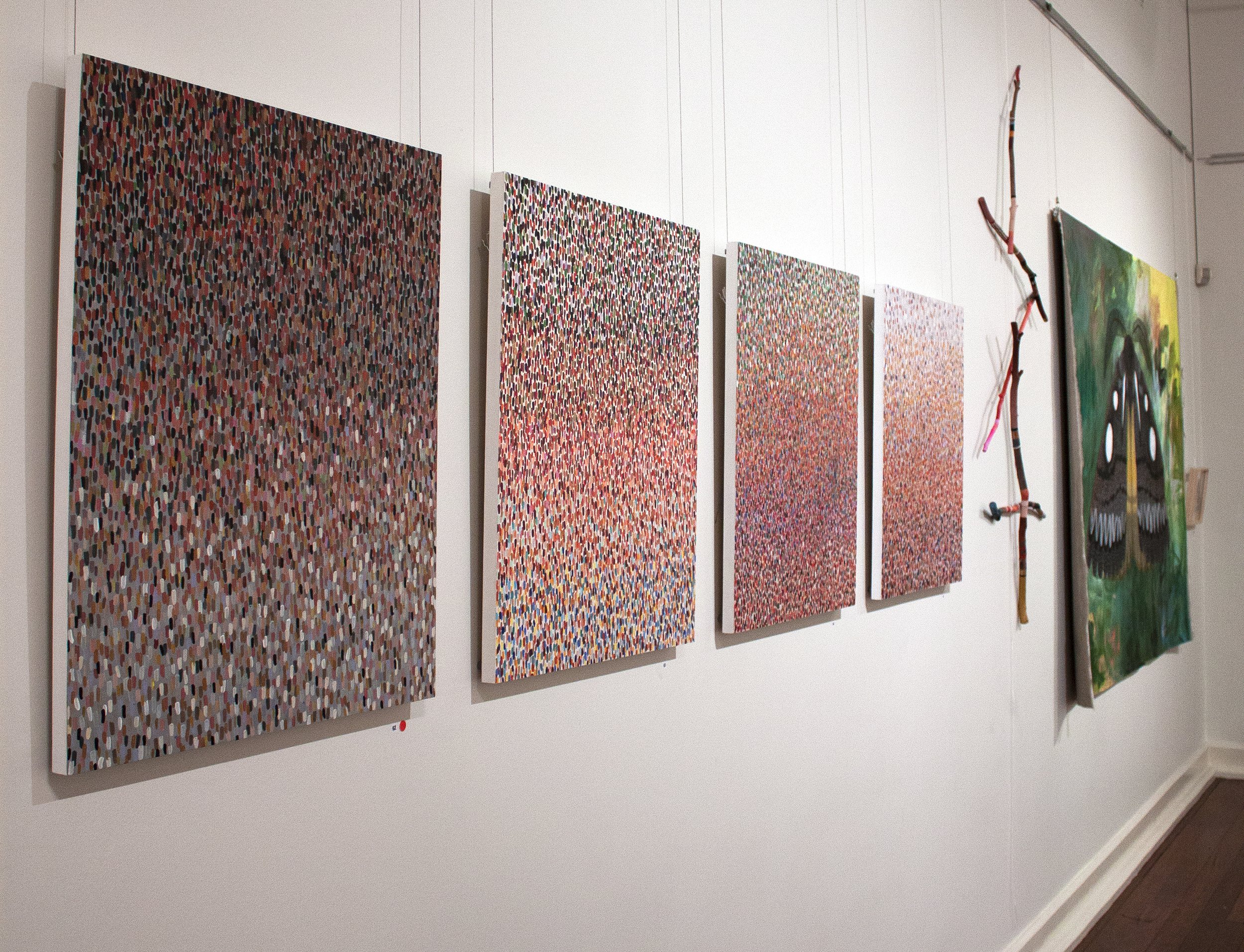
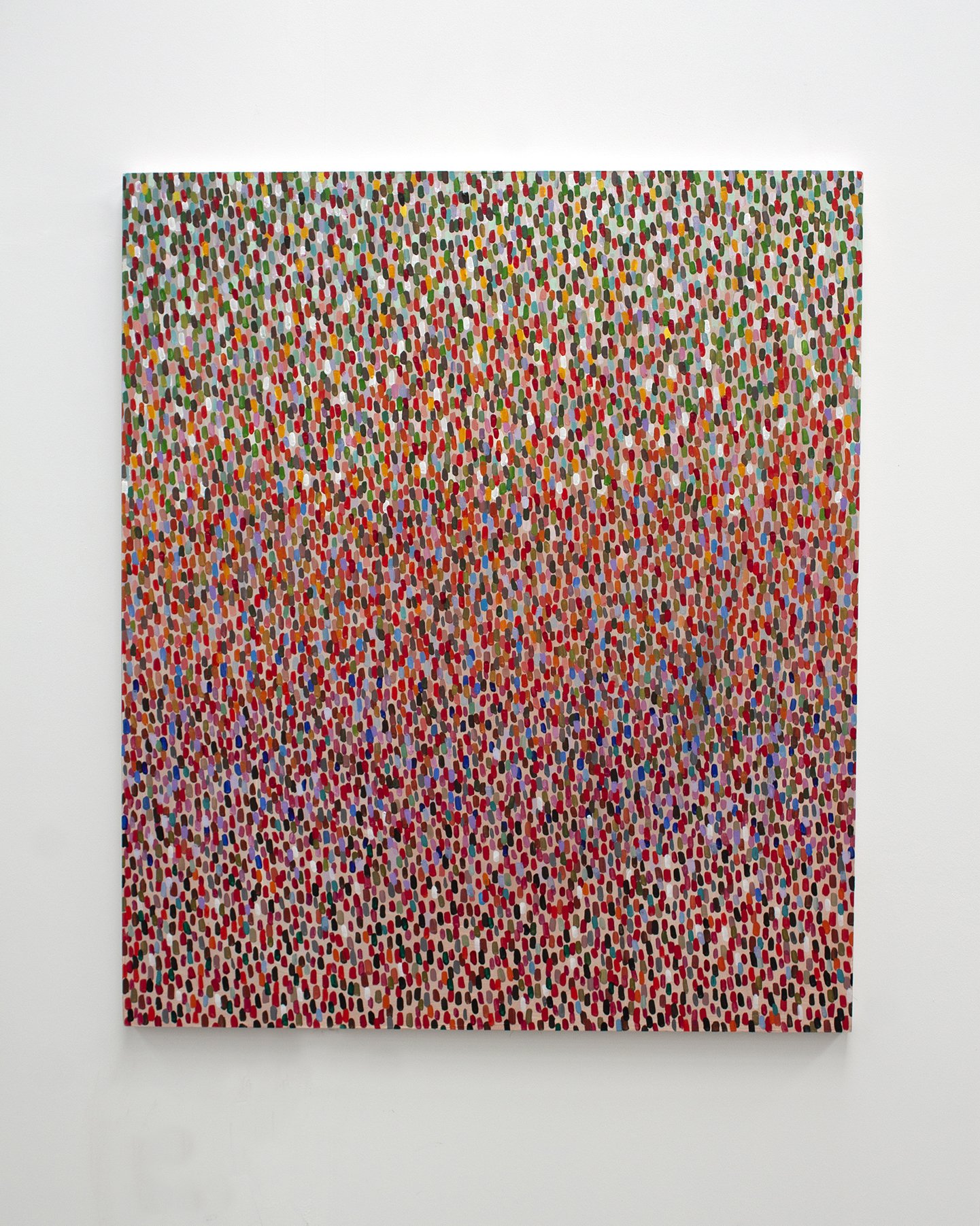
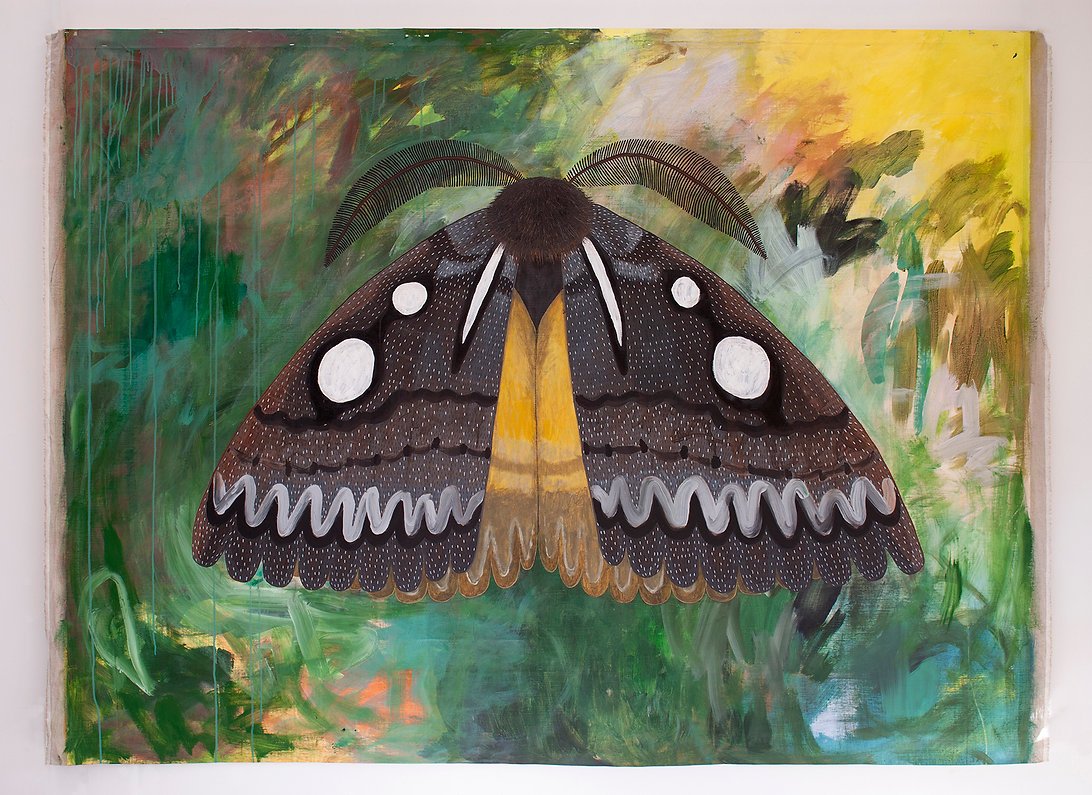
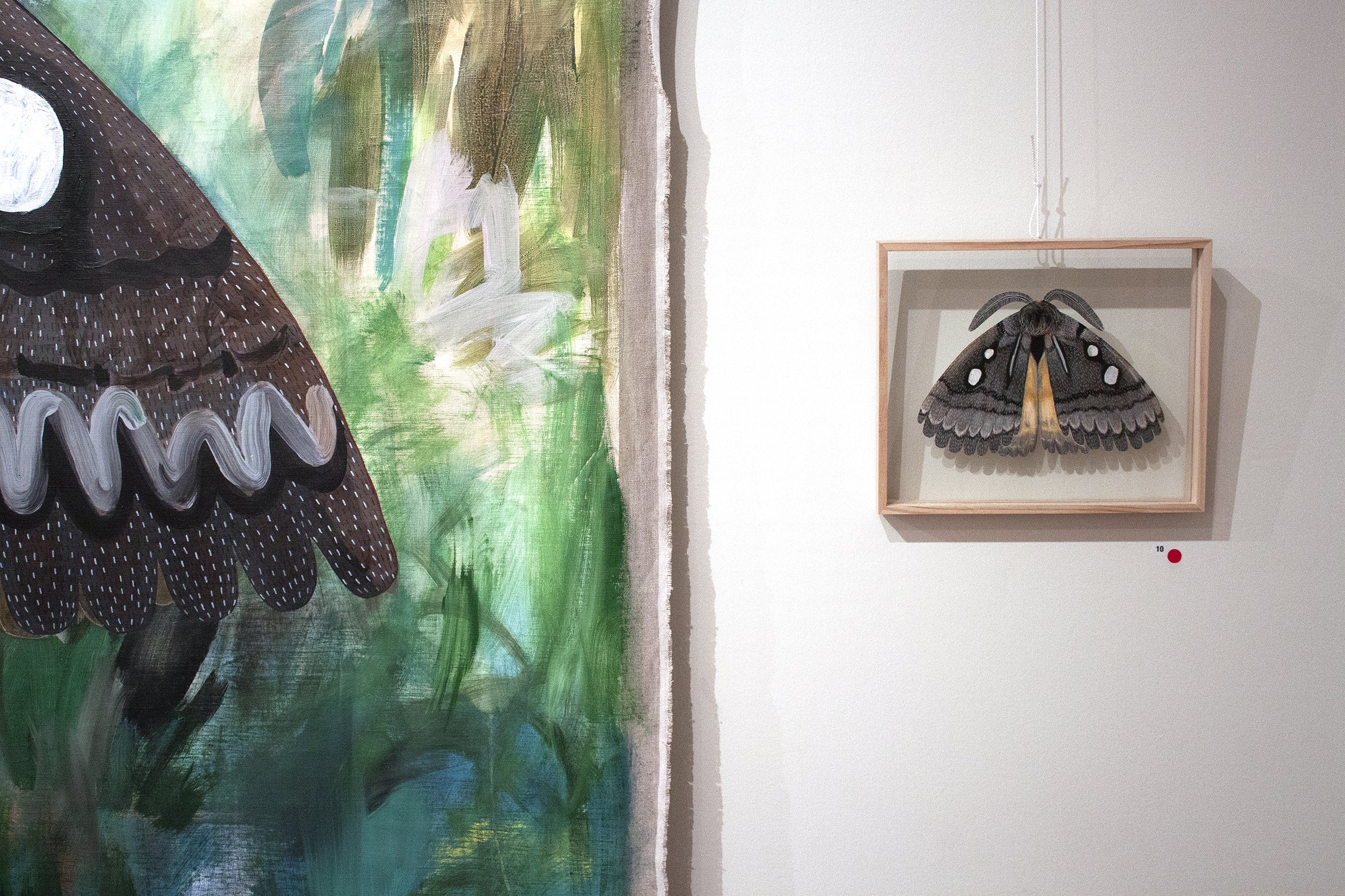
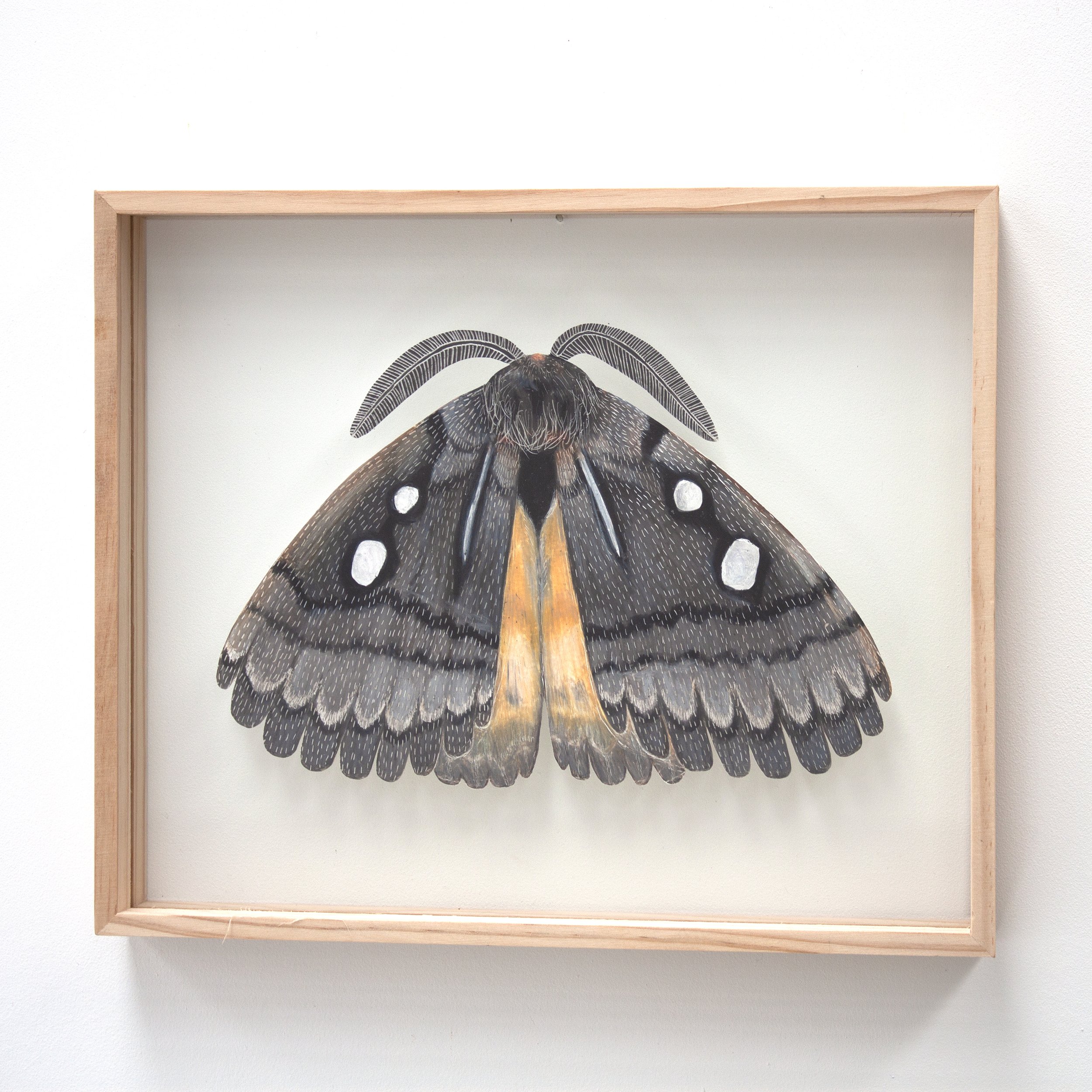
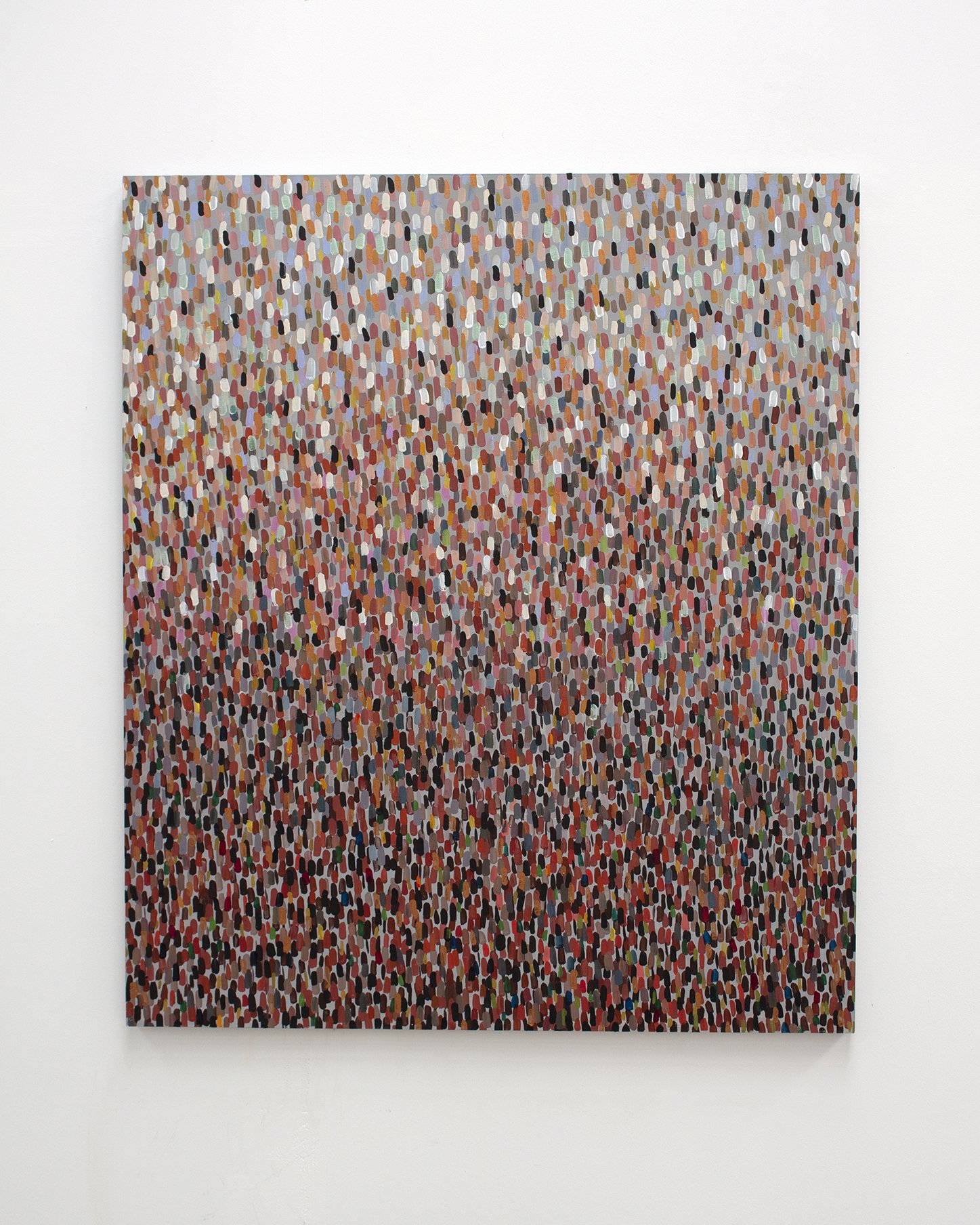
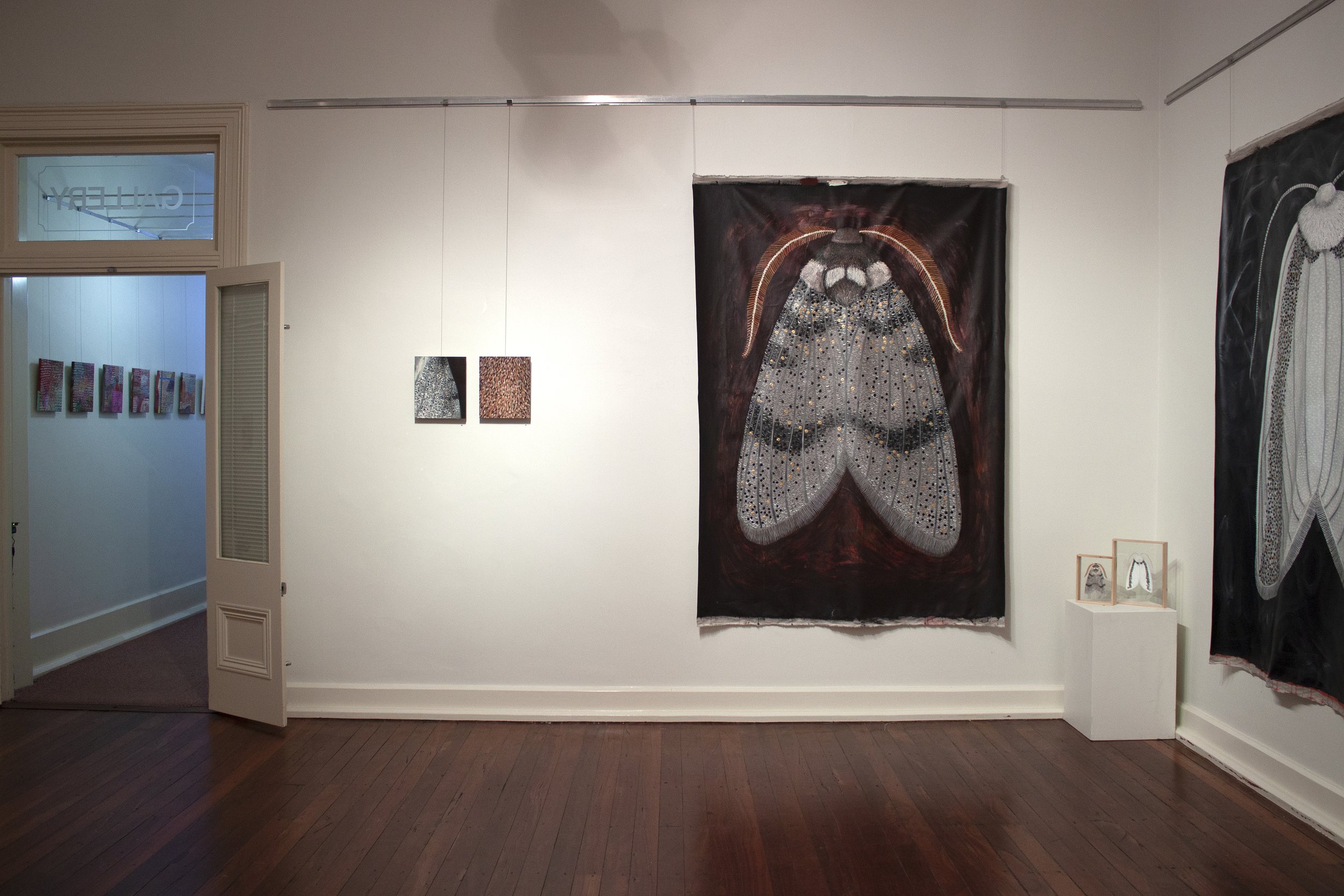
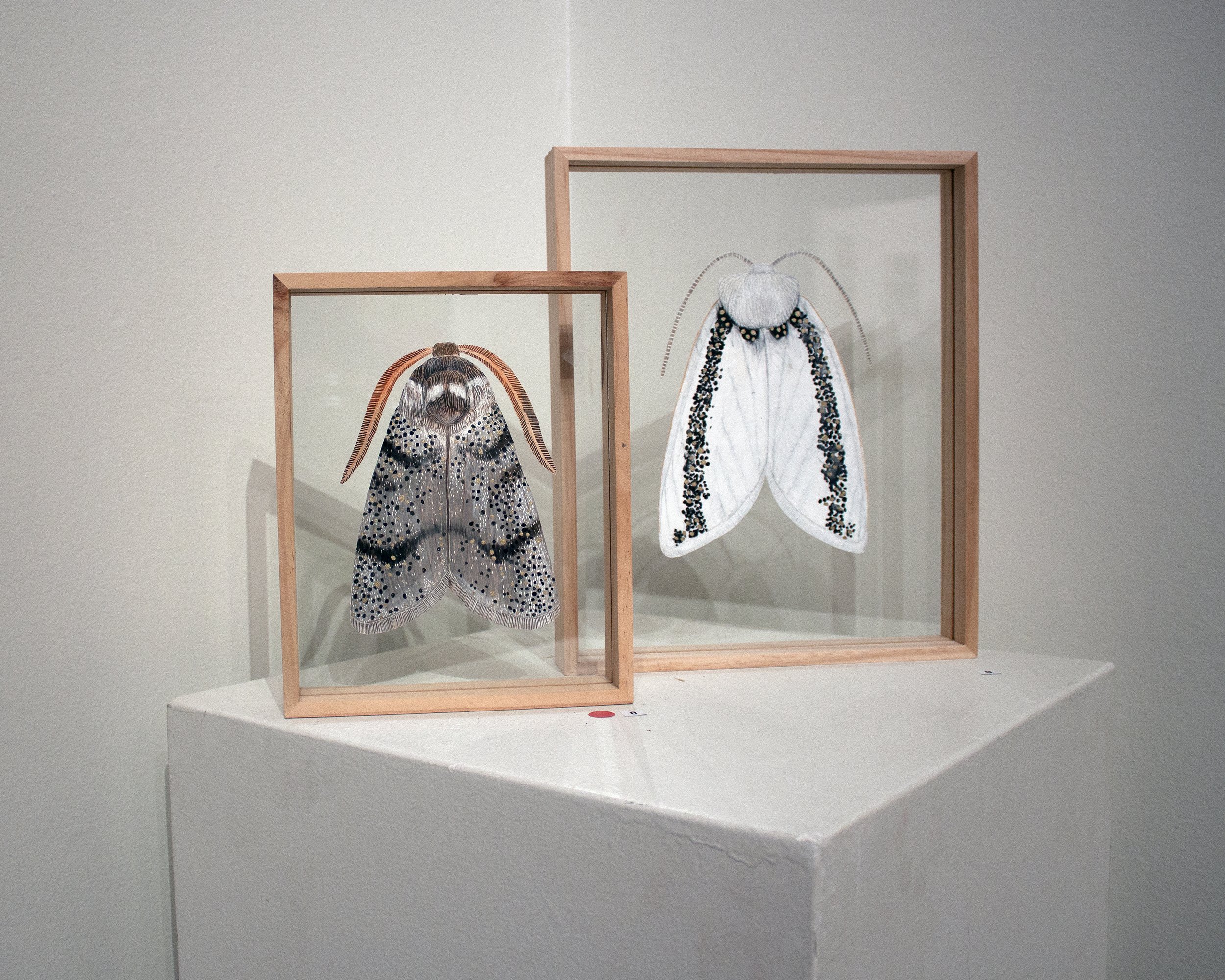
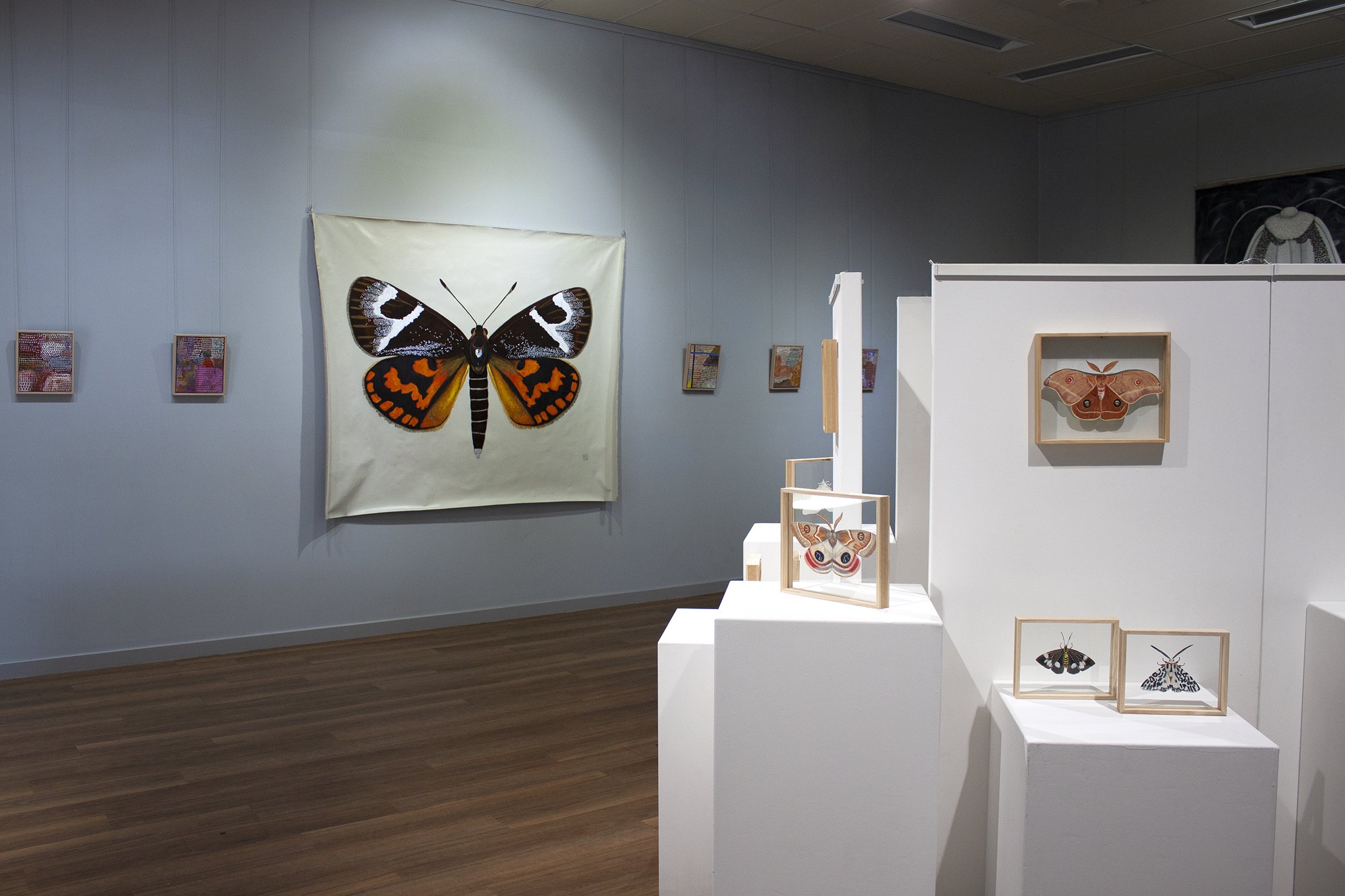
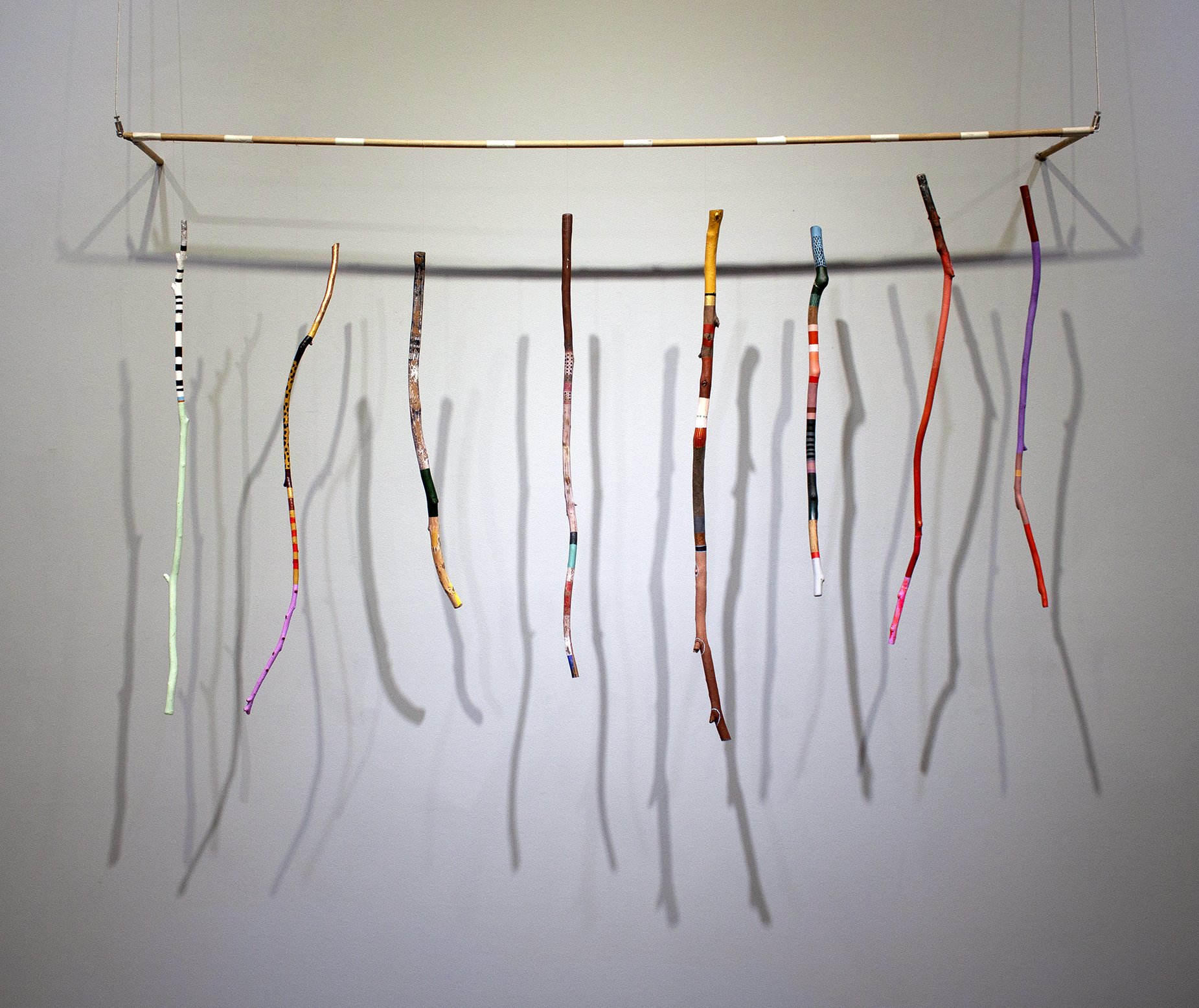
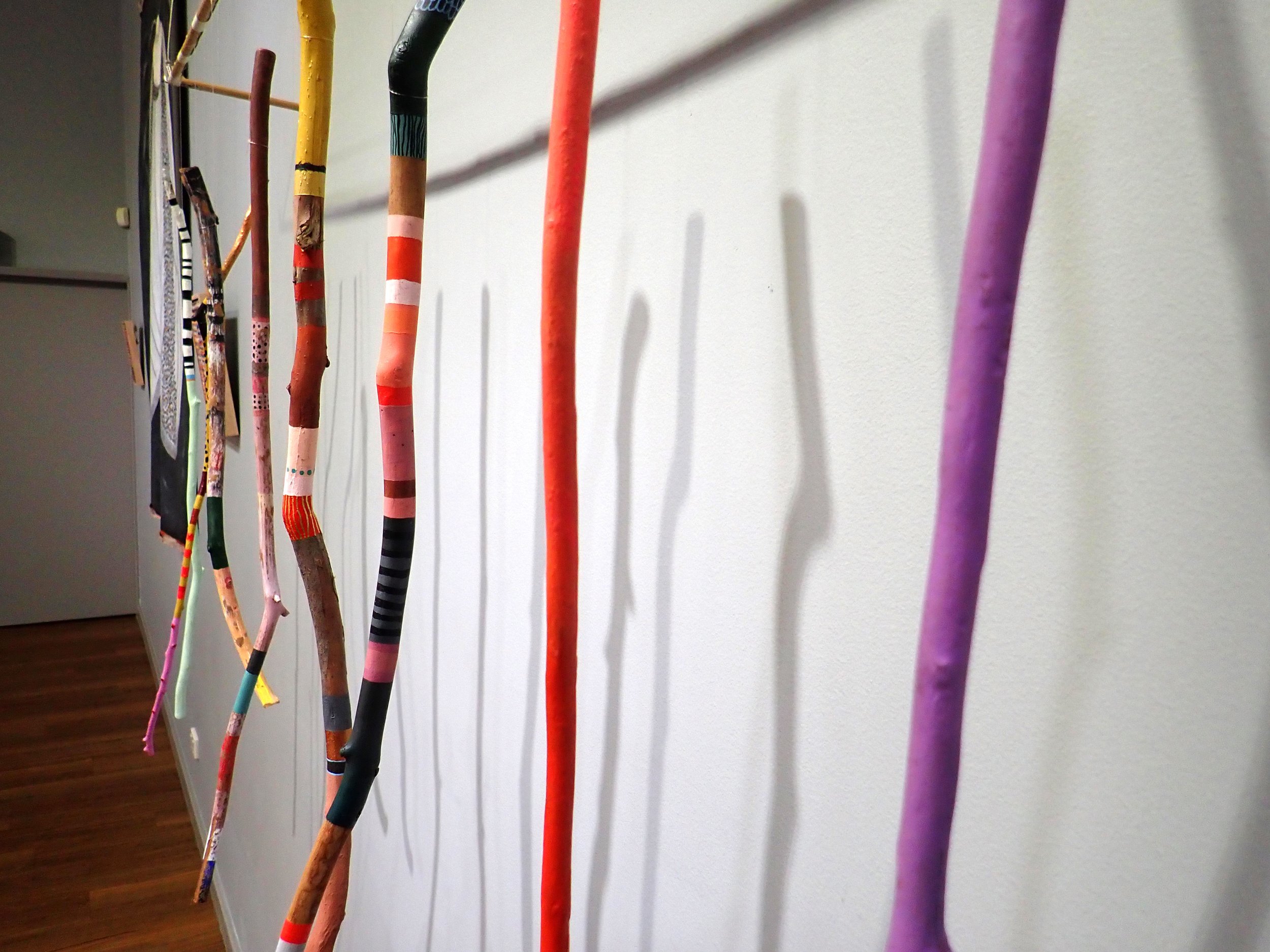
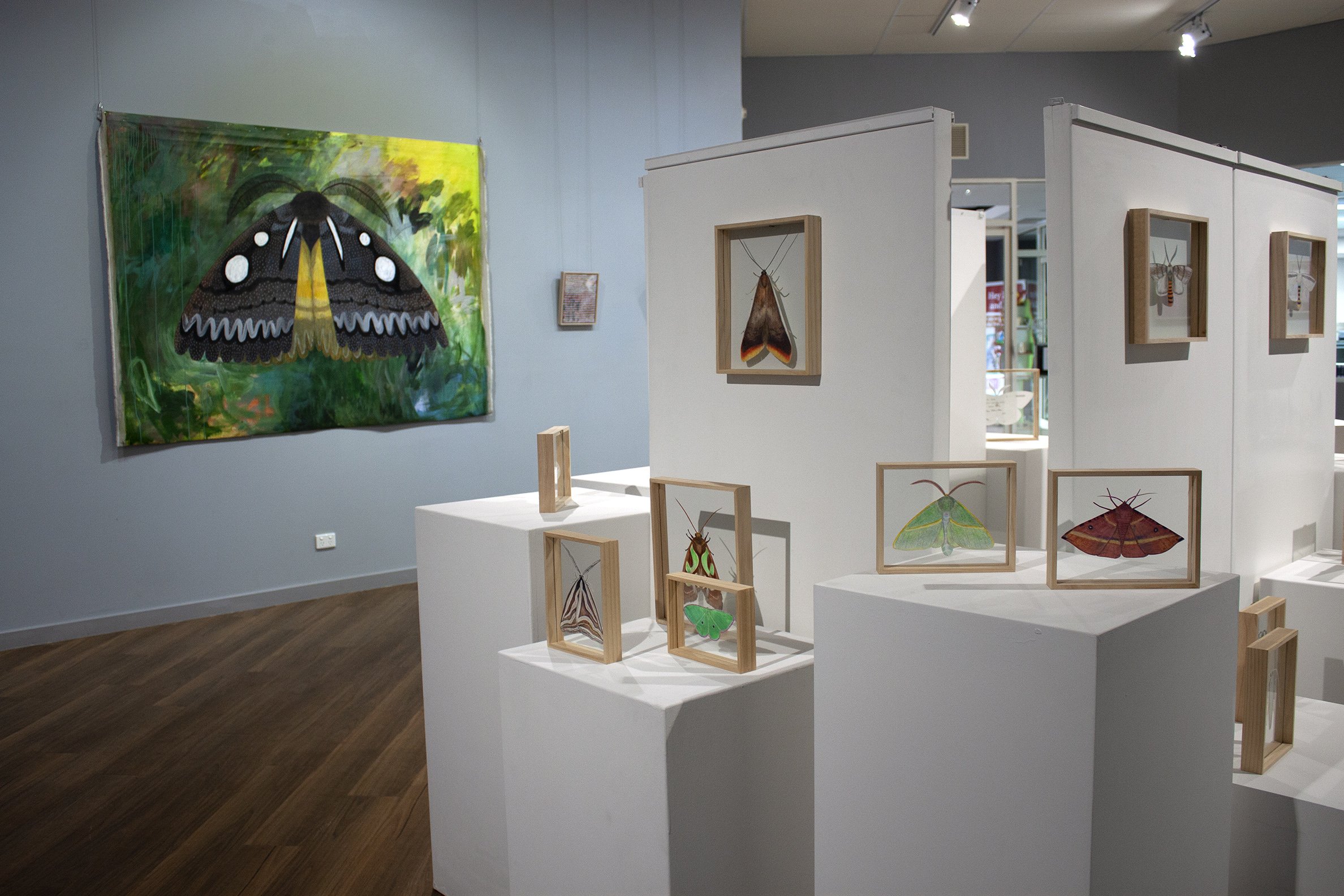
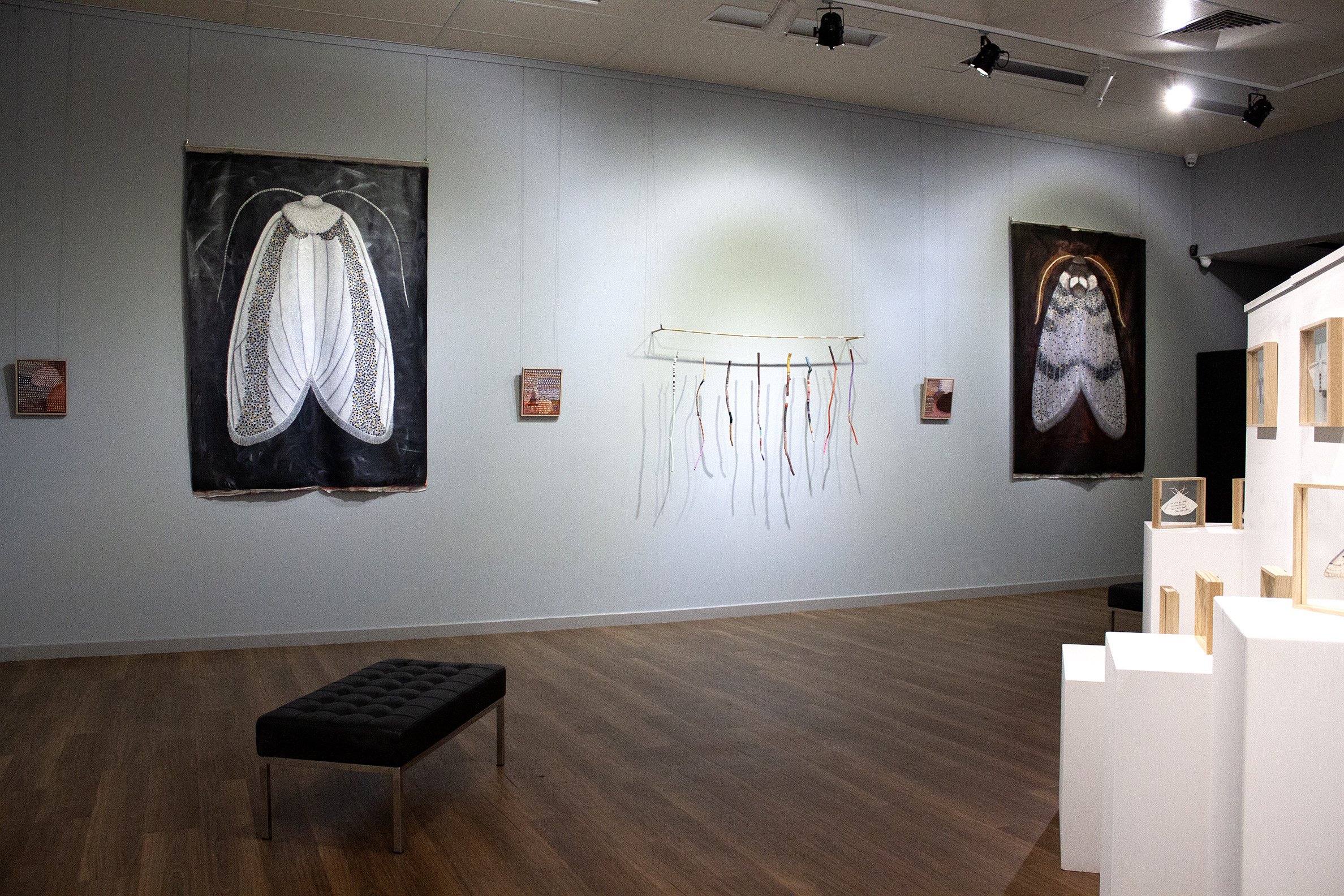
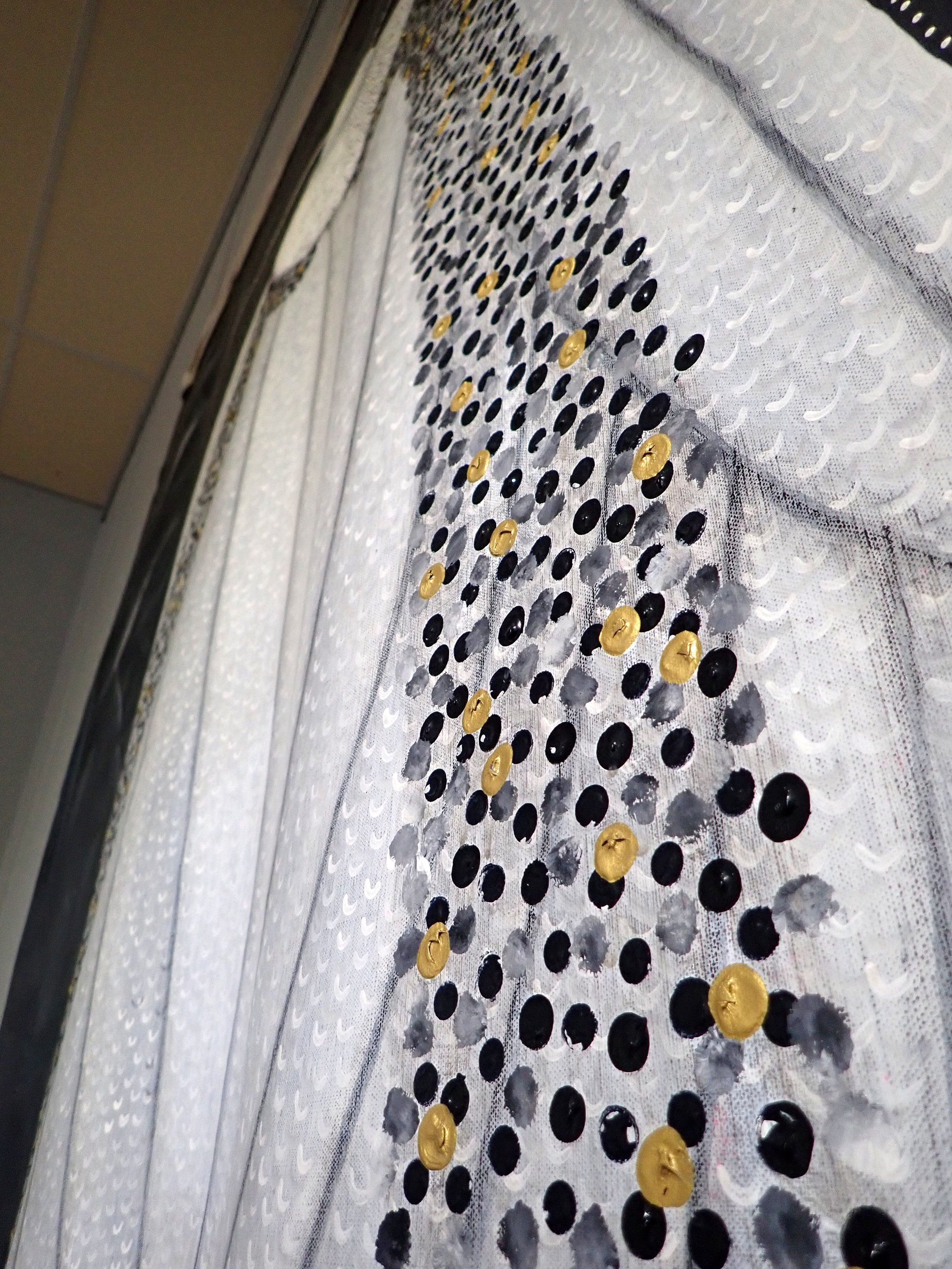
This exhibition went on tour to five regional towns in Western Australia. The artworks created for this show totaled almost 100 pieces.
I only touched on the moth diversity found in the region, there is so much yet to be explored. A number of the species are endemic - found only in this region and no where else in the world.
These pieces toured from 2019 to 2022. The exhibition started in Albany, Western Australia and then went to Esperance, Northcliffe, Manjimup and Katanning.
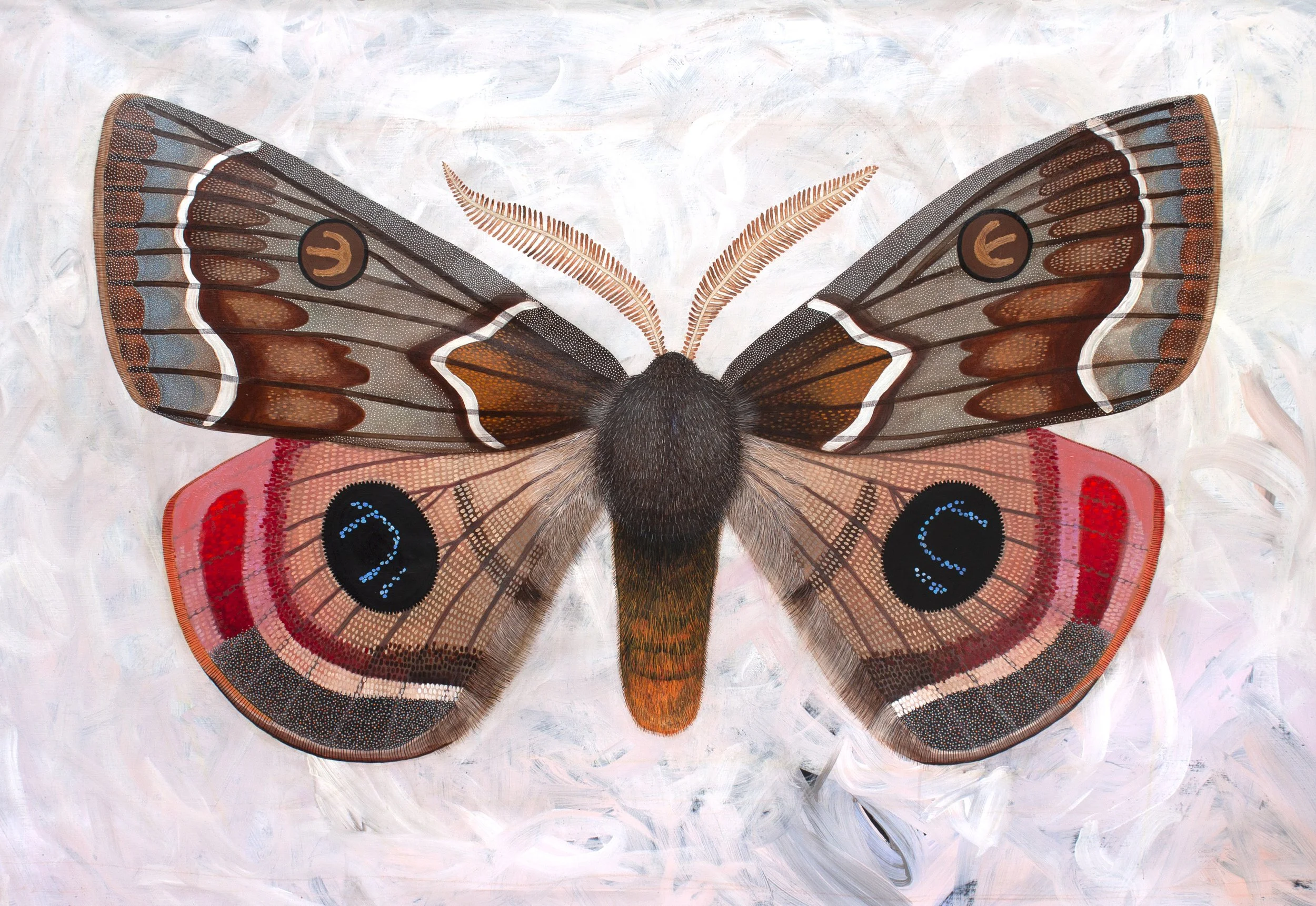
Dryandra Moth,
Carthaea saturnioides.
The Dryandra moth is a unique moth found ONLY in the south-west region of Western Australia. In fact it is the only moth in the entire family of Carthaeidae, making it incredibly special and unique! Wingspan ranges from 8 to 10cm. The larvae feed on Dryandra shrubs but may also eat Gravillea plants if necessary.
2.2 metres x 1.7 metres
Oil and acrylic on linen

Helena Gum Moth,
Opodiphthera helena.
Many people will have seen this species as it is abundant and has a large with a wing-span of 13 to 17cm. Its larvae feed on species of eucalypts (gum trees). Its colour can vary from pinkish-brown to a terracotta-brown. This is one of my favorites for its beautiful little fuzzy legs and huge antennae, it will readily crawl onto your hand without being frightened and allow you to observe it up close!
2.2 metres x 1.7 metres
Oil and acrylic on linen
Moth Specimen Collection.
I drew each of these with an artist-grade wax crayon on yuppo paper, scratching in the details of the scales and hairs with a small knife. I wanted to recreate the impression of a museum specimen collection, but larger, so you can take a decent look at each of the moths (even the tiny ones). If you would like to view all of these individual artworks from this part of the exhibition, please click below.

